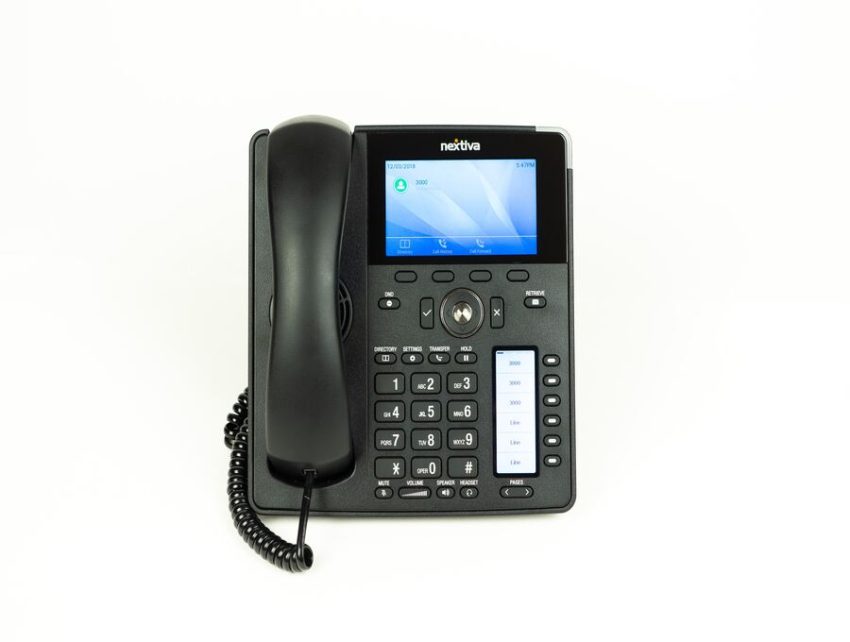In this fast-paced digital age, every minute counts when it comes to running a successful business. And one of the key factors that can make or break your productivity levels is communication. That’s where Voice over Internet Protocol (VoIP) phone systems come in.
If you’re tired of dealing with traditional landlines that are expensive, inflexible, and outdated, then it’s time to embrace the power of VoIP. With its advanced features and cost-effective solutions, VoIP systems are revolutionizing how businesses communicate both internally and externally.
But what exactly are VoIP systems? How do they work? And most importantly, how can they help boost your productivity and efficiency levels? Read on as we delve into this complete guide that will take you through everything you need to know about integrating a VoIP system into your business operations. So let’s get started!
VoIP systems: what they are and what they do
VoIP systems, also known as Voice over Internet Protocol, are a modern and efficient solution for businesses to streamline their communication processes. Unlike traditional landlines that rely on physical phone lines, VoIP utilizes the internet to transmit voice data.
So what exactly can a VoIP system do? Well, it offers a wide range of features and functionalities that can greatly enhance your business communication. From call forwarding and voicemail transcription to video conferencing and virtual extensions, VoIP empowers you with tools to stay connected with your team members and clients no matter where they are in the world.
One of the major advantages of using a VoIP system is its cost-effectiveness. With traditional landlines, you often have to pay exorbitant fees for long-distance calls or adding extra phone lines. But with VoIP, these costs are significantly reduced since all calls are transmitted over the internet.
Moreover, by integrating your business’s existing communication infrastructure into a unified VoIP network, you can eliminate the need for separate telephone lines for each department or location. This not only saves money but also simplifies management and ensures smooth internal communication across various branches or remote teams.
Additionally, another noteworthy feature of VoIP is its scalability. As your business grows and expands, adding new users or locations becomes hassle-free with just a few clicks. No more dealing with complex wiring installations or waiting for technicians – simply connect new devices to your existing network and start communicating instantly.
VoIP systems offer businesses an array of powerful features while cutting down on costs associated with traditional landline systems. Whether it’s improving collaboration through video conferencing or facilitating seamless customer interactions via virtual extensions, embracing this technology can undoubtedly boost productivity levels within your organization.
Types of VoIP systems
When it comes to VoIP systems, there are several different types available on the market today. Each type offers its own unique set of features and benefits, so it’s important to choose the one that best suits your business needs.
One common type of VoIP system is the hosted or cloud-based system. With this option, all of your phone system hardware and software is stored and maintained by a third-party provider in their data center. This means you don’t have to worry about managing any equipment or performing updates yourself – everything is taken care of for you.
Another popular choice is an on-premises VoIP system. With this option, you purchase all of the necessary hardware and software upfront and install it on-site at your office location. While this may require more upfront investment and maintenance responsibilities, it gives you greater control over your phone system.
There are also hybrid options available that combine elements of both hosted and on-premises systems. These allow businesses to customize their setup based on their specific needs and preferences. For example, you might choose to keep certain sensitive data stored locally while utilizing cloud services for other aspects of your communication infrastructure.
No matter which type of VoIP system you choose, implementing one can greatly enhance productivity and efficiency within your business. By taking advantage of advanced features such as call routing, voicemail transcription, video conferencing, and mobile integration – just to name a few – you can streamline communication processes both internally among team members as well as externally with clients or customers.
In conclusion (not conclusive), choosing the right type of VoIP phone system for your business requires careful consideration based on factors such as budgetary constraints, scalability requirements, security concerns, IT resources available for management tasks etc… It’s always recommended to consult with experts in this field who can provide guidance tailored specifically towards meeting YOUR organization’s unique needs!

